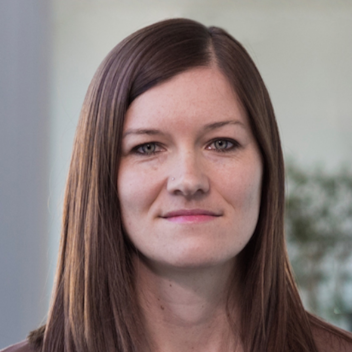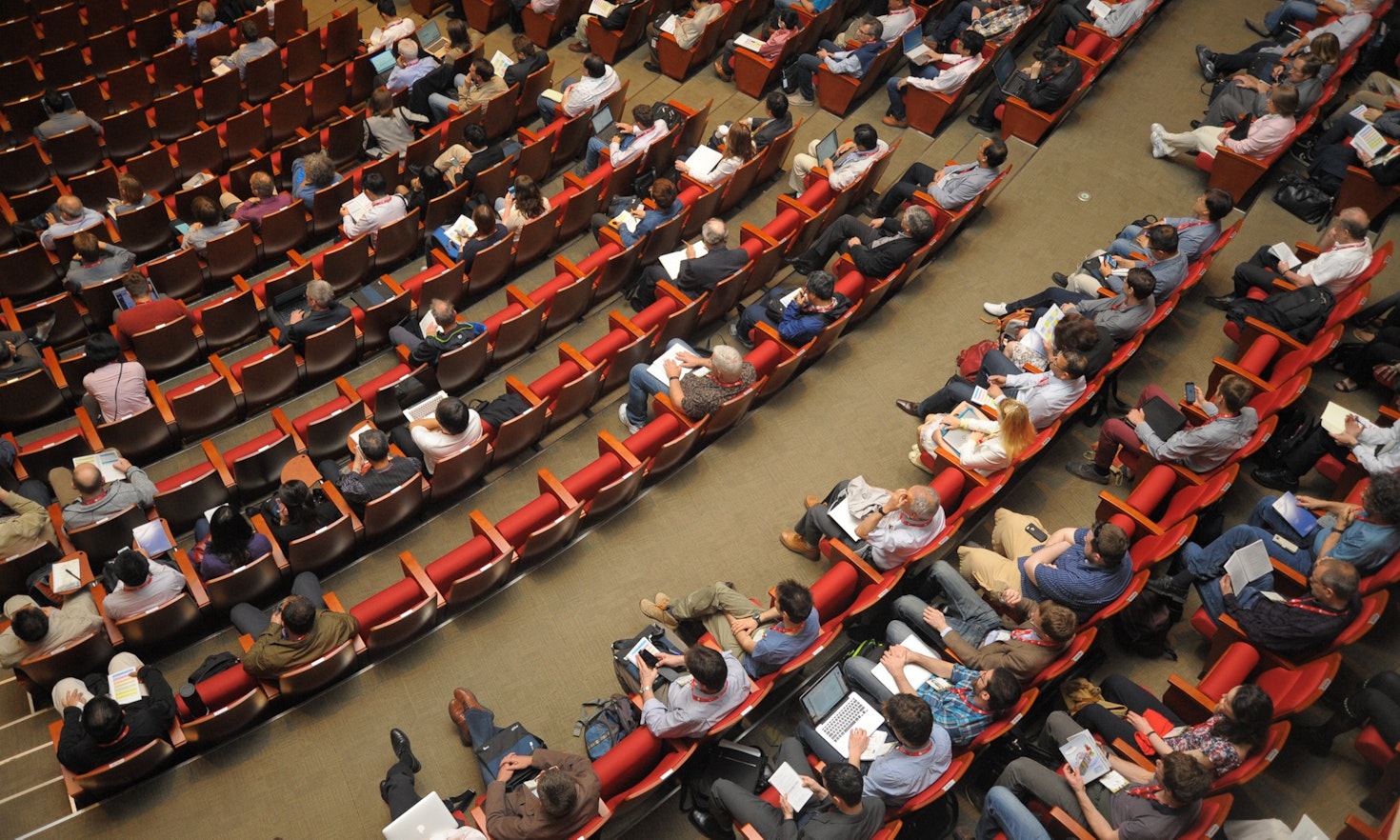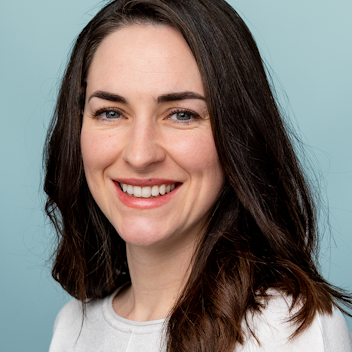
In ladino si può parlare di tutto?
 Ruth Videsott
Ruth Videsott
There is good evidence that conference trips promote scientific output while boosting scientists’ careers. But some scientists cannot afford to participate. Metascientist Sarahanne M. Field highlights the options to make conferences more accessible.
In academia, we talk about the scientific community being a global one. We refer to our international colleagues as if we’re just neighbors in the same street rather than being separated by thousands of miles of land and water. As though we’re all participating equally in the scientific enterprise. The reality is much different, however, and for many researchers throughout the world, physical co-presence is difficult to achieve. This issue flew below the radar for many researchers until COVID-19 happened.
During the pandemic, we realized, as a community, that most business could be conducted virtually. The number of ways to make research activities more accessible climbed along with the COVID case numbers. We worked from makeshift home offices, learning about new online meeting platforms alongside learning to bake sourdough, and to be comfortable doing online talks in loungewear and slippers, or at least from the waist down. We got used to saying (and hearing) “You’re on mute” – a phrase foreign to most of us merely months before the virus swept the world. Conferences went from being held in person to becoming virtual almost overnight.
This meant that the barriers to participation in the scientific community came down for many people. New mothers breastfeeding their babies could attend conferences without having to worry about facilities for pumping and storing breastmilk, and people with chronic illnesses could arrange their attendance around their needs (rather than it being the other way around). People conducting research based in the Global South could present their research without having to apply for visas that may not be granted, and they didn’t have to worry about whether their department would be able to foot the bill for their hotel, accommodation, and conference sign-up.
On a cold Tuesday in February 2023, a flicker of movement on my computer screen grabbed my attention. An email had arrived in my inbox triggering a desktop notification, announcing the receipt of an email about a proposal I had submitted to the Metascience Symposium to be held in Washington in May. “Congratulations,” the email began, “your proposal has been selected for a discussion at the Metascience 2023 conference.” My heart sank – a reaction in complete contrast to the typical response of a researcher to such an email.
Indeed, such news is usually positive. Researchers submit proposals to conferences – for papers, posters, and other sessions – in the hope of raising the profile of their research, and that of their groups, as well as for themselves and their students. They’ll meet up with colleagues at the conference dinner and other informal moments over conference-center coffee (and, if they’re really lucky, fresh pastries and cake). They go to catch up with the newest research projects in their fields over poster and plenary sessions, all whilst being in a new city (and out of the office, and away from their kids, if they’re parents) for a few days.
But me? I didn’t want to go. It didn’t feel right that we were back to travelling incredible distances by air to attend a conference for mere days. It felt a lot like we were travelling back in time; as though the pandemic hadn’t happened, and we hadn’t learned out of necessity just how easily we could remove barriers for participation in scientific discussion. And I don’t want to come across as if I am taking the moral high-ground here – while I do get plane-sick, I like travel as much as the next person (and the seafood at the Old Ebbitt Grill really is worth waiting two hours for a table)! I just felt uneasy that I seemed to be able to just go back to pre-pandemic levels of ‘travel privilege’, without even looking back. As is the case with most wealthy white people, I have trouble seeing my own entitlement, so when I do become aware of it, I know to take notice.
Now, there’s evidence to suggest that for scientific researchers, travel is an important ingredient in the recipe for career success. Astrophysicist Olivier Berné and colleagues’ 2022 article on the relationship between air travel and one’s h-index is one such example. This study did not establish a causal link between air miles and h-index, that is, this is an observational study, rather than one that directly manipulated the relationship between the variables. As such, it is not clear whether the travel increased the h-index or whether more prominent researchers (a status for which the h-index is one proxy) travel more frequently. Likely, the answer is both – the relationship is bi-directional.
it is not clear whether travel increases the h-index or whether more prominent researchers (a status for which the h-index is one proxy) travel more frequently. Likely, the answer is both.
Sarahanne M. Field
In a 2017 study, information scientist, Cassidy R. Sugimoto and her colleagues found that internationally mobile scholars (defined as scholars with multiple countries of affiliation) boast “about 40% higher citation rates, on average” – or, to put it more simply, more impact – than their non-mobile colleagues. “Limiting the circulation of scholars will damage the entire scientific system”, they argue. On the level of the collective, it has been shown that international collaborations are good for the research industry. Research management consultant Jonathan Adams shows how rises in research output in Western Europe and the US are entirely due to international collaborations, rather than domestic ones (2013). He concludes that “citation impact is typically greater when research groups collaborate, and the benefit strengthens when co-authorship is international.” Articles such as those of Adams and Sugimoto and colleagues clearly signal to researchers that international travel is good both for them as individuals, as well as for the overall scientific enterprise.
In a sense, whether we can produce empirical evidence for the role of travel for conferences and the development of our academic profile does not really matter. If we miss out on opportunities for co-presence, we miss out on opportunities to collaborate on projects, to start journals, to write grants, to share our own work in talks and posters, and to put our names in people’s minds and on their lips when they next need someone with our expertise and skills. In short, we miss out on ways to position ourselves within our disciplines as researchers. It is difficult to replace the experience of getting to know important figures in our fields by sharing a dinner table and a drink, or the hotel’s dingy basement gym with them. Building a scientific profile involves an accumulation of things of course. It is not all about being there. It’s also about developing our own research stream, advertising ourselves through publishing articles and via social media, but there can be no doubt about the central role that conference attendance plays.
For the community of researchers investing in open and reform science, this issue should be especially salient. This is because we’ve given ourselves the task of disrupting systemic problems in academia. We’re interested in changing how we conduct and disseminate research, developing new practices, philosophies, and platforms to facilitate that change. We’re interested in openness, in terms of access to research data, code and software, but also in terms of rethinking who can sit at the table of science, broadening the diversity of contributions to research. Olivia Guest, a cognitive scientist and Kirstie Whitaker, Programme Director for Tools, Practices and Systems at The Alan Turing Institute, explained the issue of contributorship and privilege in open research eloquently in a 2020 article in The Psychologist. Science reform is deeply connected to goals of “empowering the historically disempowered” (2020; p. 36), they say. In working towards science reform, they write, open and reform science will discover “challenges that open scholarship advocates have never considered, and pathways that have never been trod.” In failing to meet this goal, the community risks replicating the very structures that the movement seeks to disrupt.
As it is, open science conferences such as SIPS (the Society for the Improvement of Psychological Science) and Metascience have largely been held in-site in locations in the Global North – in North America, Central and Western Europe and Canada. Since the pandemic, the Metascience symposium has gone back to being in-person in North America, while SIPS has offered a hybrid attendance option for their 2023 conference in Italy. In 2024, however, SIPS is being held in Nairobi, Kenya and in Hungary, Budapest in 2025. This marks a good start.
While the pandemic showed us that changes can be made very rapidly to increase diverse participation in international conferences, the reality is that we won’t change norms overnight, and there are plenty of practical limitations to consider. For one thing, online conference attendance is less easy and at this stage, provides us with much poorer networking possibilities (perhaps unsurprisingly, even the most promising platform I saw I used for virtual conferences – Gather Town – was woefully insufficient to simulate real networking). Often, live online events don’t come with transcription to ensure that people with sensory disabilities can participate. In-person conferences can be held in locations more accessible for members of the Global South, but the logistics require more labor and often necessitate requesting extra labor from the very individuals we hope to benefit. Moreover, some passports including many issued in Middle Eastern countries make international travel challenging, even when conferences are held in locations in the Global South. Finally, researchers perceive travel for conferences to be a key driver for career progression (irrespective of the reality) which means that they will likely collectively push back against attempts to curb travel and leave conferences as online events, even if it is for the greater good of the scientific community in terms of inclusivity and diversity.
While I certainly don’t have all the answers (or even many, really), I argue that we need to invest in alternative ways of doing. We need to find better platforms for virtual networking and improve the ones we are currently using. We need to raise awareness of the issue and consider how to help remove barriers to participation for researchers who are traditionally excluded from participation, while still keeping one eye on utilitarianism. We need to, as a community, show willingness to adopt new approaches for the benefit of others, and to show a lack of willingness to go along with the status quo, even if it might benefit us as individuals. To develop more options for participation that include conferences in places that serve members of the scientific community from the Global South, we need more people caring, talking, and thinking about the issue. Hopefully this is a discussion that science reform and climate activists alike can continue to drive.

This content is licensed under a Creative Commons Attribution 4.0 International license.